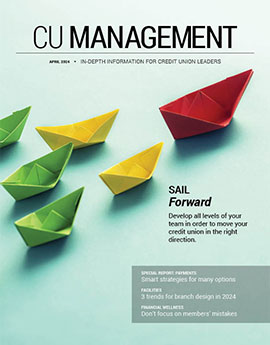4 minutes
Looking at your past progress and taking action helps overcome negative thinking.
There is a misconception in our society that confidence is an innate quality—that some people have it and some people don’t.
But confidence comes from building competence—repeatedly taking action and increasing your skill and expertise over time. As your competence increases, your belief in yourself increases.
The dictionary definition of confidence is “a feeling of self-assurance arising from one’s appreciation of one’s own abilities or qualities”.
In my work with executives and leaders, even those who appear the most successful externally often struggle with confidence in some areas. No one is successful at everything. And there is always someone else out in the world who may be better than you in some areas. When we compare ourselves to others, we are often left feeling inadequate and insecure.
One of my mentors, Dan Sullivan, calls this “gap thinking.” Gap thinking is when you measure yourself against your goals looking forward, focusing on the gap between where you are and where you want to be. Understanding where you are and where you want to be is useful for setting goals and creating a vision for your life, but many times, people get stuck in the gap and focus on what they don’t have, what they haven’t accomplished, or how far they have to go to reach their goals.
With gap thinking, you’re in the Negative Zone, and you feel failure, frustration, disappointment, low self-esteem, guilt and depression.
Dan suggests that when you measure your progress and goals, you measure backwards. Instead of focusing on what you haven’t accomplished or what you don’t have, you look back at where you started and focus on “the gain”. The gain is the progress you have made.
With gain thinking, you’re in the Positive Zone, and you feel success, satisfaction, confidence, high self-esteem, enjoyment and optimism.
Last September, my husband and I started taking tennis lessons. I had only picked up a tennis racket a few times in my life and had very little knowledge of the game. At our tennis lesson last week, I reflected on how far I have come since starting in September. I definitely have a lot more to learn and I’m nowhere near where I want to be, but I have made significant progress over the past eight months. That is gain thinking. I am feeling good about my progress, even though I know I still have a long way to go. I feel positive about where I am right now. If I were to start comparing myself to the tennis player on the court next to me who is a much better player, I would start feeling bad about myself. That gap thinking won’t keep me in the right mindset for future growth.
Perhaps you were recently promoted to a leadership position. It can feel overwhelming learning how to lead people, but as you build your skills and competence in leadership, your confidence will start to build. No one starts a new position feeling completely confident in their skills and abilities. Part of the human experience is the process of learning and developing.
We all fall into the trap of gap thinking. The first step is to notice when you do it so you can consciously shift your mindset about your goals and progress.
Beware of Compare!
It is human nature to compare ourselves to others. But comparison thinking usually takes a negative toll on our progress, confidence and belief. There is a difference between that and seeing someone who is successful and using that information to get clarity on what you want. This is a healthy way to discover where you want to develop and grow in your life.
There is also a fallacy that people who appear confident and successful don’t feel as much anxiety and fear—that they somehow are lucky to have this superpower of belief in themselves. This is simply not true. People who appear confident feel fear and anxiety. The difference is, they take action despite the fear and anxiety. They have become comfortable being uncomfortable and recognize the negative feelings as a normal part of developing themselves and working toward their goals.
Become an observer of your thoughts and beliefs. Start to notice when you have doubts or get into gap thinking. Self-awareness is a key to leadership success. Becoming more self-aware can help you to shift your negative thinking patterns and help you build confidence over time.
Laurie Maddalena, MBA, CPCC, PHR, is a certified executive coach, leadership consultant and founder of Envision Excellence LLC in the Washington, D.C., area. Her mission is to create exceptional cultures by teaching leaders how to be exceptional. Maddalena facilitates management and executive training programs and team-building sessions and speaks at leadership events. Prior to starting her business, she was an HR executive at a $450 million credit union. Contact her at 240.605.7940 or lmaddalena@envisionexcellence.net.










